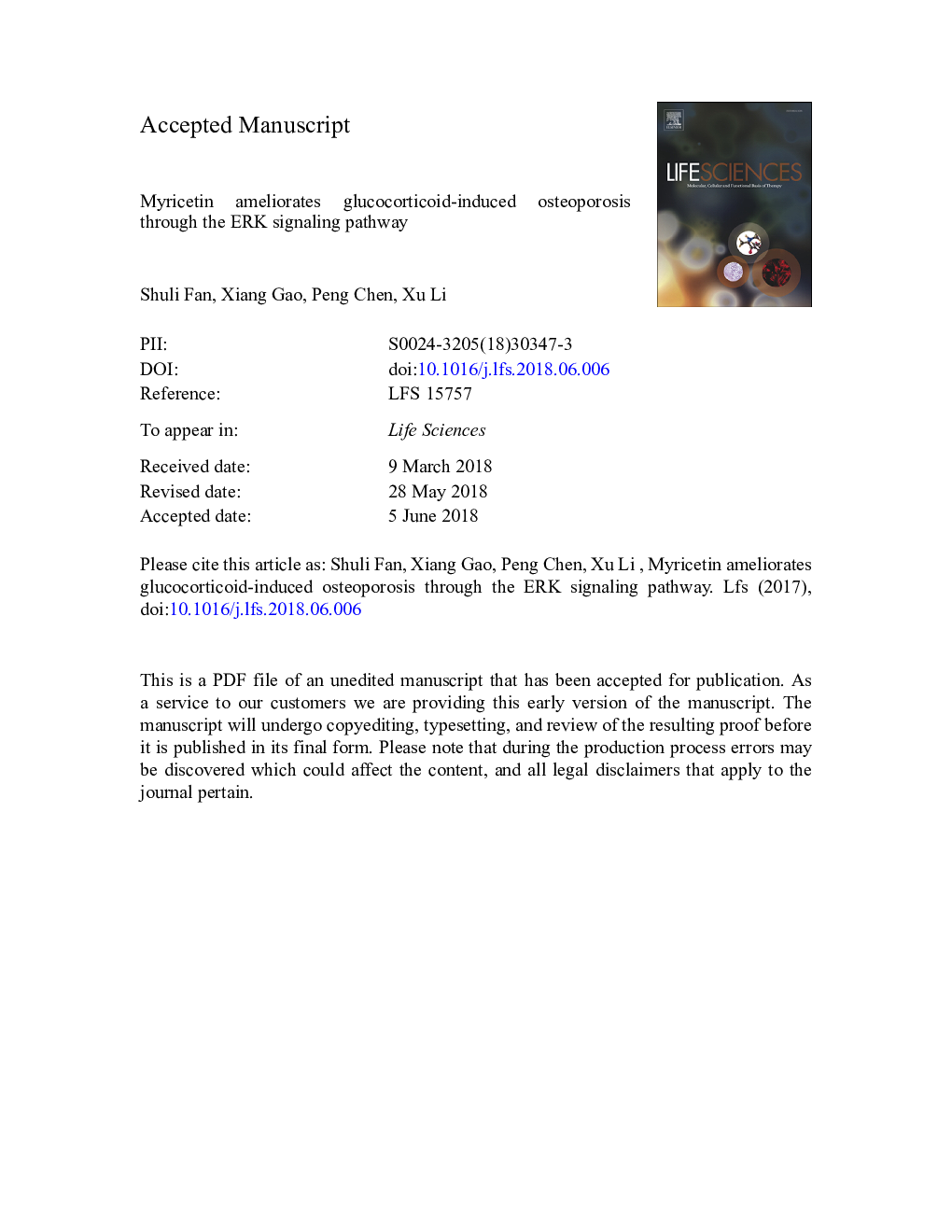| Article ID | Journal | Published Year | Pages | File Type |
|---|---|---|---|---|
| 8534708 | Life Sciences | 2018 | 30 Pages |
Abstract
Myricetin has been reported to promote osteogenic differentiation and inhibit osteoclastogenesis. The aim of this study was to investigate the potential effects of myricetin on glucocorticoid-induced osteoporosis (GIOP) both in vivo and in vitro. Male Sprague-Dawley (SD) rats were given dexamethasone (DEX, 0.1â¯mg/kg, s.c.) once daily and myricetin (1â¯mg/kg or 2.5â¯mg/kg, i.p.) once every other day for a total of five weeks. Body weight was recorded once a week. Bone mineral density (BMD), the activities or levels of bone turnover markers, and histological changes were assessed. MC3T3-E1 cells were incubated with DEX (1â¯Î¼M) and myricetin (20â¯Î¼M). Osteoblast proliferation, differentiation and mineralization were evaluated. U0126 was added to evaluate the involvement of the ERK signaling pathway. The results showed that myricetin increased body weight gain and inhibited DEX-induced reduction in BMD, enhanced alkaline phosphatase (ALP) activity, and upregulated osteocalcin (OCN), bone morphogenetic protein 2 (BMP2) and runt-related transcription factor 2 (Runx2) levels, whereas reduced tartrate-resistant acid phosphatase (TRAP) activity and C-terminal telopeptide of type I collagen (CTx) level. In addition, myricetin ameliorated histological changes in the femurs. In our in vitro studies, myricetin promoted osteoblast differentiation and mineralization in DEX-treated MC3T3-E1 cells, accompanied by increases in BMP2, Runx2, ALP, OCN, collagen type I alpha 1 (COL1A1) and osteopontin (OPN) levels. The promotion effects of myricetin on osteogenic differentiation and matrix mineralization were reversed by U0126. These results suggest that myricetin may alleviate DEX-induced osteoporosis by promoting osteogenic differentiation and matrix mineralization via the ERK signaling pathway.
Related Topics
Health Sciences
Medicine and Dentistry
Cardiology and Cardiovascular Medicine
Authors
Shuli Fan, Xiang Gao, Peng Chen, Xu Li,
